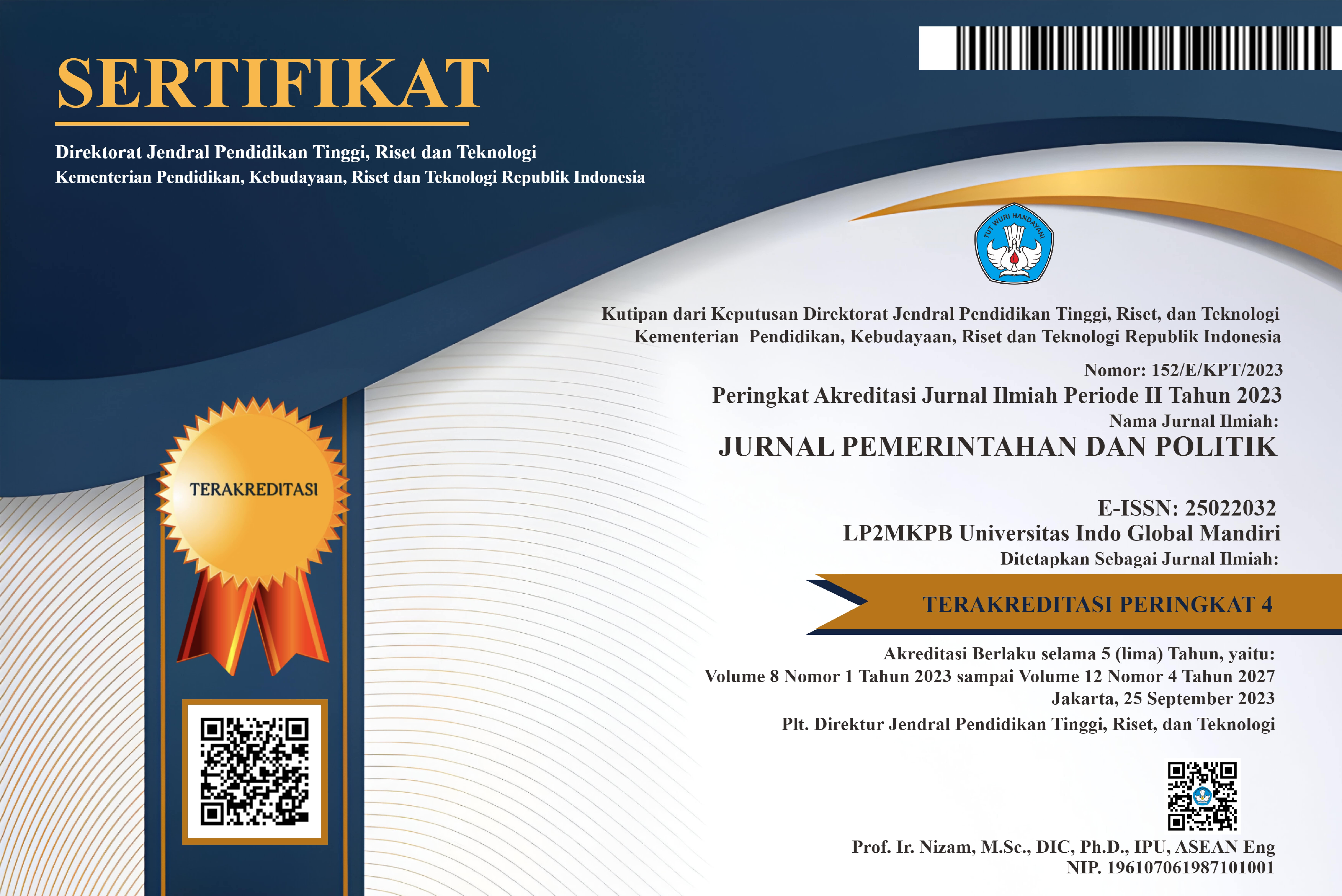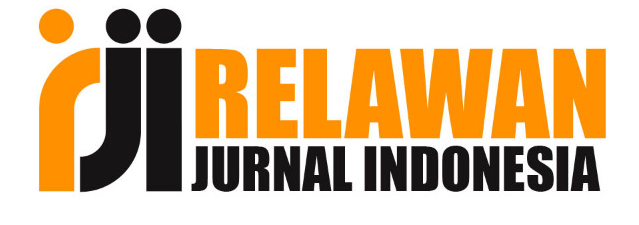Proses Collaborative Governance dalam Penanganan Banjir di Kota Semarang City
DOI:
https://doi.org/10.36982/jpg.v8i4.3472Keywords:
Collaborative Governance, Flood, SemarangAbstract
This study discusses the process of collaborative governance in handling floods in the city of Semarang. The phenomenon is that the people's mindset is not in line with the disaster mitigation system, the increased risk of flood disasters due to the growth and expansion of settlements and industry, and the lack of optimal coordination in flood handling and rehabilitation. The research objective is to analyze the collaboration process that occurs in handling floods in the city of Semarang and the supporting and inhibiting factors. The research method used is a qualitative method. The results of research show that the collaboration process has been going well, which consists of face-to-face dialogue, trust building, commitment to process, shared understanding, and intermediate outcomes. However, the share understanding indicator is not optimal due to differences in understanding of the problems faced by the private sector and the community with BPBD Semarang City. Supporting factors are network structures that are well built with each other and there is no hierarchy in this network; commitment through the efforts each goes through; trust in one another; information that is easily accessed; and human resources involved. The inhibiting factors are governance, distributive accountability and responsibility, and access to resources. Obstacles encountered can come from the government itself, where there is minimal transparency, no division of decisions that can hinder collaboration, and technical implementation due to constraints on authority that are compartmentalized.
References
Anies. 2017. Negara Sejuta Bencana. Yogyakarta: Ar Ruzz Media
Ansell, Chris, and Alison Gash. 2007. Collaborative Governance in Theory and Practice. Journal of Public Administration Research and Theory. JPART 18: 543-571
Beatrix, H. 2020. Pentingnya Penerapan Pendidikan Mitigasi Bencana Di Sekolah Untuk Mengetahui Kesiapsiagaan Peserta Didik. Journal Edukasi Nonfromal, 1(2), Hal. 94–102.
BMKG. (2021 February 07). Hujan Ekstrem Memicu Banjir di Semarang. Retrieved on 03 July 2023, from https://www.bmkg.go.id/press-release/?p=bmkg-hujan-ekstrem-memicu-banjir-di-semarang
BPBD, Kota Semrang. (2023 July 05). Data Bencana. Retrieved on 05 July 2023, from https://bpbd.semarangkota.go.id/pages/data-bencana
DeSeve, G. E. 2007. Creating managed networks as a response to societal challenges. In The business of government. IBM center for business of government.
Donahue, J. 2004. On Collaborative Governance. Academic Medicine, 83(6), 568–573.
Emerson, K., Nabatchi, T., & Balogh, S. 2012. An Integrative Framework for Collaborative Governance. Journal of Public Administration Research and Theory, 22(1), 1–29.
Ghozali, A., Ariyaningsih, Sukmara, R. B., & Aulia, B. U. 2016. A comparative study of climate change mitigation and adaptation of flood management betwen Ayutthaya City (Thailand) and Samarinda City (Indonesia). Procedia - Social and Behavioral Sciences, 227, 424–429.
Heru, B., & Hendro, R. 2020. Strategi Ketahanan Kota Berkelanjutan Terhadap Bencana Banjir: Birmingham Dan Semarang. Jurnal Aaki/ Volume 1, Issn No.2722-175X, 85-95.
Jawa Pos. (2023 Mey 02). Penanganan Banjir Wilayah Timur dan Dinar Indah Jadi Prioritas. Retrieved on 03 July 2023, from https://radarsemarang.jawapos.com/Semarang/721408656/penanganan-banjir-wilayah-timur-dan-dinar-indah-jadi-prioritas
Kariem, M. Q., & Afrijal. 2021. Collaborative Governance pada Revitalisasi Sungai Sekanak di Kota Palembang. Jurnal Pemerintahan Dan Politik 6(3), Hal. 107-114.
Khambali. 2017. Menejemen Penanggulangan Bencana. Yogyakarta: Cv. Andi Offset.
Mahardika, D., & Setianingsih, E. L. 2018. Manajemen Bencana Oleh Badan Penanggulangan Bencana Daerah (Bpbd) Dalam Menanggulangi Banjir Di Kota Semarang, Journal Of Public Policy.
Moleong, Lexy J. 2011. Metode Penelitian Kualitatif. Bandung: PT Remaja Rosdakarya
Neise, T., & Diez, J. R. 2018. Firms’ contribution to flood risk reduction-scenario-based experiments from Jakarta and Semarang, Indonesia. Procedia Engineering, 212, 567– 574.
Permatasari, I. S., Nurcahyanto, H., & Musawa, M. 2012. Strategi Penanganan Kebencanaan di Kota Semarang (Studi Banjir dan Rob). Journal of Public Policy and Management Review, 1(1), 191-200.
Retno, S. A., Hardi, W., & Rachim, A. 2020. Collaborative Governance dalam Perspektif Administrasi Publik. Semarang: DAP Press. Sun, X. 2017. Research and Prospect of Collaborative Governance Theory. Public Policy and Administration Research, 7(7), 50-53.
Sunarharum, T. M., Sloan, M., & Susilawati, C. 2014. Re-framing planning decision- making: Increasing flood resilience in Jakarta. International Journal of Disaster Resilience in the Built Environment, 5(3), 230–242












